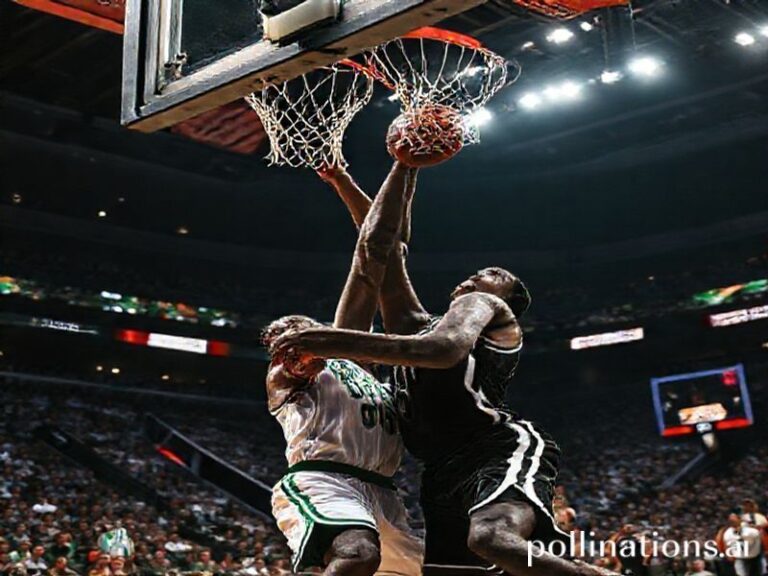Haynes King’s Global Second Act: Why the World Keeps Falling for American Reboot Stories
Haynes King: The Quarterback Who Became a Global Metaphor for Second Chances
By our jaded but still-sentimental foreign correspondent
If you’ve never heard of Haynes King, congratulations—you’ve successfully avoided the American habit of exporting every middling athletic drama as if it were the Magna Carta. Yet here we are, dragging the Texas A&M quarterback onto the world stage because his story is suddenly useful beyond the forty-yard line. From Singaporean hedge-fund analysts to Parisian bartenders, everyone can recognize a man who loses his dream job, flees to the provinces (in King’s case, Georgia Tech), and then spends a season weaponizing rejection like a startup pitching “disruption” to venture capitalists.
King’s 2023 transfer was less “bold career move” than “panicked self-rescue,” the football equivalent of a developing nation devaluing its currency overnight. Overnight, the onetime five-star recruit went from potential first-round pick to cautionary LinkedIn post. American pundits called it a “market correction”; everywhere else it looked like the same plot that sank WeWork, only with more turf toe.
But the global resonance lies in the rebound. By November 2024 King is slinging touchdowns for a ranked Georgia Tech side, flirting with the Heisman conversation, and—most importantly—reminding every overqualified barista from Lisbon to Lima that reinvention is still possible, provided you’re 6’3”, can throw a spiral, and don’t mind relocating to a city famous for traffic and Coca-Cola.
Still, the metaphor travels well. In South Korea, where “Hell Joseon” memes chronicle youth unemployment, King’s revival feels like proof that swapping jerseys (or corporate subsidiaries) can outrun failure. In Nigeria’s tech hubs, his journey is packaged into pitch-deck parables: pivot fast, burn the tape, rebrand. Even European football agents—those silk-tied vampires who shuttle talent across leagues—confess a certain envy; American college athletes can switch countries (okay, states) without FIFA’s Byzantine transfer fees or a single ultras group setting their car on fire.
Yet the darker punchline haunts the celebration. King’s second act is only feasible because the NCAA invented a loophole big enough to drive a Brink’s truck of NIL money through. His “fresh start” arrives lubricated by endorsement deals that dwarf the annual budget of a Samoan ministry. Across the planet, workers trapped in non-compete clauses or bonded labor look at this liberation and rightly wonder why their own lives offer no portal to hop teams. The answer, as always, is that capitalism approves of mobility only when it can sell tickets.
International audiences also notice the collateral damage rarely mentioned in feel-good highlight packages. The kid King replaced at Georgia Tech? Probably selling insurance by February. For every phoenix narrative, someone else is the ash. It’s the same zero-sum melodrama playing out in Bangladeshi garment factories when orders migrate to Vietnam overnight—except there’s no ESPN cameras to chronicle the layoffs, just a terse WhatsApp message: “Line stopped. Don’t come tomorrow.”
And then there’s the geopolitical kicker. American football remains a sport only the United States truly loves, yet it keeps trying to colonize eyeballs abroad. The NFL stages games in London and Munich; universities flirt with Dublin. Haynes King, therefore, isn’t just a backup-turned-Heisman hopeful—he’s an unwitting cultural export, a soft-power Trojan horse wrapped in a visor and compression shirt. If he wins the big trophy, expect the State Department to slot him into embassy meet-and-greets faster than you can say “flag route.” Nothing sells the American dream like a Texan who escaped purgatory via Atlanta.
So toast him if you like. His comeback is genuinely electric television, the rare reality show that hasn’t yet been exposed as scripted. But remember that every highlight reel is also a distraction, a shiny object hurled across the room while the clock on bigger problems—climate, inequality, the slow-motion demolition of democratic norms—keeps ticking. Haynes King may very well hoist silverware in December, and the confetti will look magical under stadium lights. Somewhere offshore, a container ship full of yesterday’s plastic glitter will be heading toward a landfill nobody wants to talk about. That’s the play the cameras never follow.







